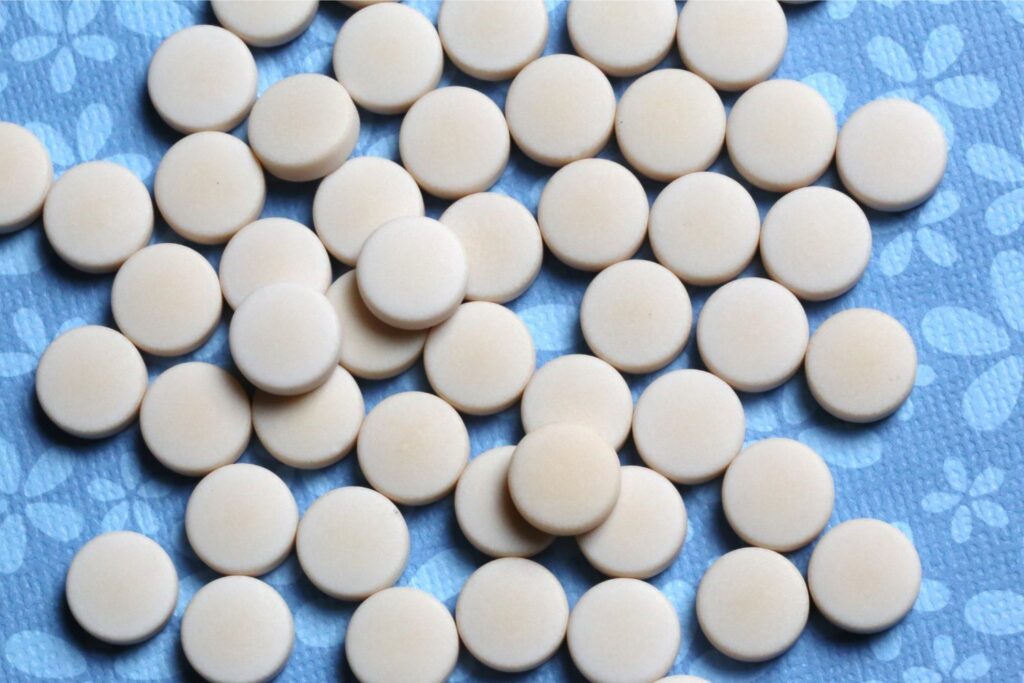A new era in menopause treatment appears to be upon us. This week, drugmaker Bayer announced the results of two successful Phase III trials testing its experimental drug elinzanetant in treating hot flashes. The drug is now expected to be the first approved non-hormonal drug of its kind in the world.
Hot flashes and night sweats are common symptoms of menopause, affecting about 80% of women throughout their lives. Hot flashes, formally known as vasomotor symptoms, are characterized by the sudden onset of warmth, redness, and sweating, usually around the face, neck, and chest (night sweats are similar, but occur at night and during sleep). These episodes can be very uncomfortable, and more severe cases are thought to increase the risk of poor sleep and depression. While hot flashes do subside over time, they typically last at least two years, and some women experience them for a decade or more, according to the Mayo Clinic.
Historically, hot flashes have been effectively treated with hormonal therapy, which is designed to replace the levels of estrogen and progesterone that decline with menopause. Beginning in the late 1990s, however, large-scale trials began to show that hormone therapy may increase the risk of other health problems in menopausal women, including heart disease, breast cancer, and stroke, and the results soon attracted widespread attention. Continued decline. Later research and recent data analysis found that these risks may be exaggerated but can be safely mitigated. Organizations like the North American Menopause Society currently say that the benefits of hormonal treatment for hot flashes outweigh any potential harms for most women who start treatment before age 60 and/or within ten years of their last menstrual period. But hormone therapy is still not as popular as it once was, and some women are at higher risk of complications, such as those with a history of breast cancer.
Women who are unwilling or unable to use hormones to treat hot flashes have so far had limited other options, such as low doses of certain SSRIs. But in the early 2010s, scientists finally began to unravel some of the mechanisms underlying hot flashes. They found that a group of neurons that produce kissin, neurokinin B (NKB) and dynorphin, called KNDy neurons, play a key role in causing the flushing associated with low estrogen levels. Later research found that blocking the activity of certain receptors on these cells could safely reduce hot flashes. In May 2023, the U.S. Food and Drug Administration approved Astellas Pharmaceuticals’ fezolinetant, the first drug to treat hot flashes by blocking one of the receptors, NK3.
Bayer’s elinzanetant blocks NK3 and NK1 receptors, a dual-action design that scientists hope will not only reduce hot flashes but also the sleep problems commonly associated with menopause. The largest Phase III trial of the drug was published Thursday in the journal Journal of the American Medical Associationthose hopes appear to have been vindicated.
The studies involved more than 700 women in their 40s and 50s diagnosed with moderate to severe hot flashes who were randomly assigned to receive elinzanetant or a placebo. In both trials, researchers found that women who took elinzanetant, a once-daily pill, had significantly fewer hot flashes than those in the control group. At the end of the study after 26 weeks, more than 80% of women taking the drug had experienced a more than 50% reduction in symptoms, including women who switched to the drug 12 weeks after the trial. Participants also reported fewer sleep disturbances and higher improvements in menopause-related quality of life than women who took placebo. Elinzanetant also appears to be safe, with the most common adverse events in patients taking the drug (compared with placebo) being headache and fatigue.
“Elinzanetant has the potential to provide a well-tolerated and effective non-hormonal treatment option that addresses the unmet health needs of many individuals suffering from moderate to severe menopause. [hot flashes]”, researcher Journal of the American Medical Association written on paper.
The results follow similarly promising results from another phase III trial of elinzanetant announced by the company in early March of this year. The company is now planning to submit data from all three studies to regulators to secure approval for the drug to treat moderate to severe hot flashes—an approval that should be a foregone conclusion, barring any major surprises.
Just as important as the arrival of these drugs, however, is the thorny issue of cost. According to Forbes, the list price of Fezolinetant is currently about $550 per month, and insurance coverage available so far is limited. These drugs may eventually be widely covered, especially as more drugs come to market, but for now, they may not be affordable for many eligible patients.

